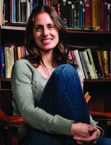Mary Volmer's Blog
September 4, 2022
A Personal History of Sport: Personal Essay Class
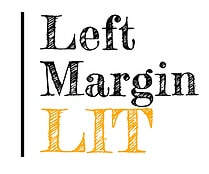
 Join me for A PERSONAL HISTORY OF SPORT
Join me for A PERSONAL HISTORY OF SPORT Dates: 4 Wednesdays, September 21 - October 12
Time: 6 - 8 pm PST
Instructor: Mary Volmer
Format: ZOOM
Genre: Nonfiction (Fiction Writers and Poets Welcome!)
Price: $275
Enroll
Sports are a vital part of western culture, yet we rarely reflect upon, much less write about, how sports have influenced our lives, our families, or our communities. In this four-week writing class, we will use sports as a lens through which to study and write personal essays.
Fear not! You don't have to be an athlete, has-been or otherwise, to join us. We will be exercising our literary muscles with daily craft talks and guided writing prompts. Together we will learn about essay structure, voice, pacing, scope, and audience. And we will read and discuss excerpts of longer works by poets, novelists, and memoirists such as Natalie Diaz, Pat Conroy, Reginald Dwayne Betts, Lucy Jane Bledsoe, John Edgar Wideman, John Updike, and Sue Hyon Bae.
With these diverse authors as our guides, we will write about our own complicated relationships to sport. How do sports affect our self-image and self-worth? Are sports a religious activity? A patriotic activity? A selfish or a selfless activity? What is a “team player”? How do we view race, gender, and sexuality through the lens of sport?
Join us and write personal essays inspired by sports.
Published on September 04, 2022 19:30
March 28, 2022
The best historical novels about badass 19th century American women
Here's my list of the best historical novels about badass 19th century American women. It was great fun revisiting these novels. If you're discovering them for the first time, enjoy! See the link below.
Shepherd - Discover The Best Books
Shepherd - Discover The Best Books

Published on March 28, 2022 10:15
August 22, 2020
The Gospel of Cantaloupe
Published on August 22, 2020 11:25
May 14, 2020
By Stories I Know You - A Mother's Day Tribute
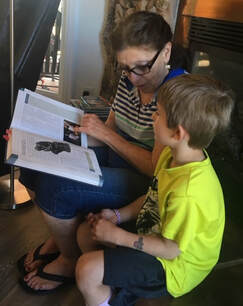 Mom grew up the daughter of ranch workers, a hardscrabble, nomadic existence in northern Nevada and California. In fifth grade she moved three times, attending three different schools in and around the head waters of the Humboldt River, a high plateau spotted by sagebrush and marked by wide open skies that felt, some nights, close enough to touch. The one constant, beyond hard physical work, were the books her mother bought on rare trips to town. A box of books traveled with them place to place --- a luxury, and one that kept her mother, my Nana, if not happy, then sane.
Mom grew up the daughter of ranch workers, a hardscrabble, nomadic existence in northern Nevada and California. In fifth grade she moved three times, attending three different schools in and around the head waters of the Humboldt River, a high plateau spotted by sagebrush and marked by wide open skies that felt, some nights, close enough to touch. The one constant, beyond hard physical work, were the books her mother bought on rare trips to town. A box of books traveled with them place to place --- a luxury, and one that kept her mother, my Nana, if not happy, then sane. When she graduated high school, Mom moved away from ranch life. She became a school librarian, then a teacher. She married a preacher’s son who, like her, wanted nothing more than to build a home and stay there. By the time I was born, their home was filled with books.
Mom’s relationship to books, never as desperate as Nana’s, has always been passionate. And though I have endured little in the way of hardship or displacement, books and stories have proven no less necessary to me. Stories, more than anything else, bind me to my mother. I suspect my hunger for frontier tales grew from a desire to know her --- that is, to know the girl she was before she was my mother: that dust-covered blonde in Levi’s, grinning from the back of a horse in old photographs. I searched for her in stories by Laura Ingalls Wilder, Larry McMurtry and Zane Gray, all of which Mom loved and read aloud from the time I was small --- as if she, too, were searching for the self she left behind.
Not that Mom has ever been one for nostalgia; she enjoys a good story, but she wouldn’t return to that life, given the chance, or wish it on me. She allowed my cowboy fantasies, but also fed me books I needed to discover myself, apart from her: Ramona Quimby, James and The Giant Peach, Johnny Tremain, Are You There God? It’s Me, Margaret, The Poisonwood Bible, To Kill a Mockingbird, Beloved, The Red Tent.
I grew up and moved away. Did what Mom had never had the chance to do: play college sports, sing in choirs, live in foreign countries. I read books she wouldn’t like or approve – as a teen, I read them because she wouldn’t approve. My adult life became, over time, as exotic to her as her girlhood had been to me.
Often, now I glimpse Mom’s face in my own reflection; I hear her voice bubbling beneath mine each night as I read to my son. Twice a week, we talk on the phone. Inevitably we talk about books --- the ones we’re reading, the ones I’m writing. When she asks me what I’m reading, I know she’s asking something more: “Who are you now that you’ve grown away from me? Can I find the woman you’ve become in the pages of your books?”
Yes, I want to tell her. You’ll find me, as I found you, in the stories we share.
First Published in bookreporter.com .
Published on May 14, 2020 07:49
April 28, 2020
The Fountain
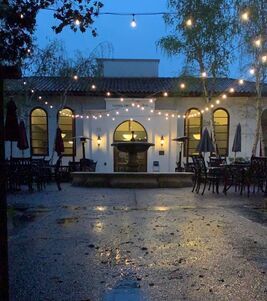 One rainy night a few weeks ago, as I wandered the deserted Saint Mary's College campus, I stopped outside the student union to watch the fountain. Raindrops rippled in puddles, and the veil of water, falling from the fountain in a soft and constant hush, was lit by streamers of hanging light bulbs. It was beautiful. I took a picture and then a slow-motion video, trying to capture the fall of individual drops of water from that veil. I expected to see, when watching the footage, nothing more or less miraculous than this.
One rainy night a few weeks ago, as I wandered the deserted Saint Mary's College campus, I stopped outside the student union to watch the fountain. Raindrops rippled in puddles, and the veil of water, falling from the fountain in a soft and constant hush, was lit by streamers of hanging light bulbs. It was beautiful. I took a picture and then a slow-motion video, trying to capture the fall of individual drops of water from that veil. I expected to see, when watching the footage, nothing more or less miraculous than this.Instead, what I saw on screen, along with that slow motion fall of water, was a curious pulse of light. A glitch, I thought, and shot another video with the same result. Rain drops, striking the overhead bulbs had, all this time, been shaking the fixtures a fraction of an inch, creating a throb of light too fast for the naked eye to see.
Nothing had changed. I hadn’t moved from the protected alcove. Yet my heart was racing. I felt mystified and oddly euphoric by the revelation of this in-between-time, which existed within the seams of my perceptions. It felt miraculous, like a gift. Shamans and Buddhists, anyone really, who has experienced altered states of consciousness, knows that one’s awareness deepens when the speed of perception slows. By slowing down—even by mechanical means, or by necessity imposed by a global pandemic—we too come to know, with greater intimacy, what we thought we knew before. We gain, by accident as much as necessity, new eyes to see.
I don’t normally credit my iphone as a tool for spiritual growth. But perhaps all things, even technology, has this potential. Now, the memory of that strobing light is an echo each time I walk by that courtyard. I’m reminded of the limits of my perceptions, and of the unseen wonders that surround me, and I am grateful.
Published on April 28, 2020 14:22
August 14, 2019
Naomi Schwartz
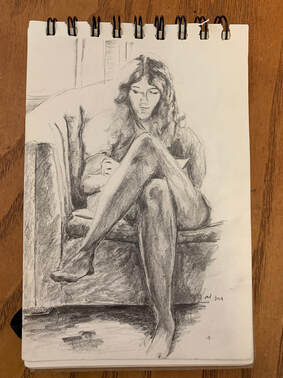 I lost my dear friend and long time editor Naomi Schwartz. Cancer made an anguished shell of her. But this how I’ll remember her: book in hand, barefoot, bathed in light. She was always telling me, "it’s okay to leave a work unfinished." She didn’t mean undone, incomplete. She meant imperfect, open. So I’ve left this picture unfinished, with white space and pencil marks to show where she lives in my imagination and the divine mystery of where she’s gone.
I lost my dear friend and long time editor Naomi Schwartz. Cancer made an anguished shell of her. But this how I’ll remember her: book in hand, barefoot, bathed in light. She was always telling me, "it’s okay to leave a work unfinished." She didn’t mean undone, incomplete. She meant imperfect, open. So I’ve left this picture unfinished, with white space and pencil marks to show where she lives in my imagination and the divine mystery of where she’s gone.I was listening, Naomi. Even when I disagreed, I was listening. We all have literary mothers. Some of them are monuments like Toni Morrison. Others are humble, crazy-haired, big-hearted adopted aunts, who feed you books, and whisper over and over: Keep going. Just keep going.
Thank you Naomi.
Published on August 14, 2019 15:44
March 7, 2019
You Are Not The Special One: A Letter To My Son
Published in MUTHA Magazine, March 5, 2019 The other day, romping through the living room, stuffed kitty under one arm, you stopped, raised your little chin like Nero and declared: “I am the special one!” Floppy blond hair, brown eyes wide, a pint-sized superhero, minus the cape. The performance should have been funny. It was funny. Your dad and I laughed.
So, why does my chest feel tight? Why this dread? You’re always bringing home words, songs and habits (good and bad) from school. And really, shouldn’t every six-year-old have the right to stand among loved ones and declare with the confidence of the chosen: “I am the special one!” Children learn better soon enough.
But that’s not true, is it? Watching Judge Kavanaugh’s tantrums on television last fall I knew it wasn’t true. Not all children learn better. There, on the television, I saw what happens when a privileged boy, like you, grows up believing he is the special one.
Such a boy grows into someone who views others as allies or obstacles to a success measured in money, power and popularity; a man who remains—at seventeen, twenty, forty, fifty—as deluded about his own relative worth as you, age six. A petulant man clinging to the lie that he earned advantages he was born into, and that people not born into the same advantages—or the same religion, ethnicity, nationality or gender—deserve less regard.
I don’t wish for you a life of such spiteful delusion. You are a special one. That’s true. You will always be my special one. But you are not the special one.
Read the rest at MUTHA Magazine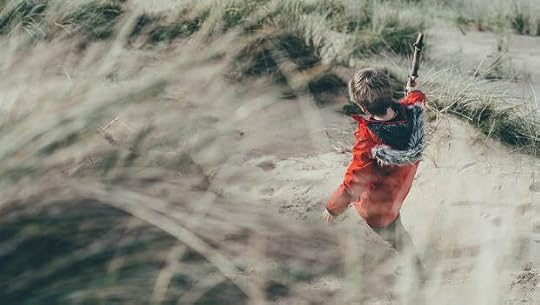
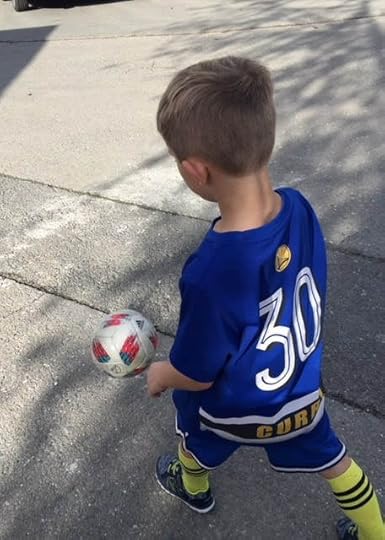
So, why does my chest feel tight? Why this dread? You’re always bringing home words, songs and habits (good and bad) from school. And really, shouldn’t every six-year-old have the right to stand among loved ones and declare with the confidence of the chosen: “I am the special one!” Children learn better soon enough.
But that’s not true, is it? Watching Judge Kavanaugh’s tantrums on television last fall I knew it wasn’t true. Not all children learn better. There, on the television, I saw what happens when a privileged boy, like you, grows up believing he is the special one.
Such a boy grows into someone who views others as allies or obstacles to a success measured in money, power and popularity; a man who remains—at seventeen, twenty, forty, fifty—as deluded about his own relative worth as you, age six. A petulant man clinging to the lie that he earned advantages he was born into, and that people not born into the same advantages—or the same religion, ethnicity, nationality or gender—deserve less regard.
I don’t wish for you a life of such spiteful delusion. You are a special one. That’s true. You will always be my special one. But you are not the special one.
Read the rest at MUTHA Magazine


Published on March 07, 2019 20:25
December 19, 2018
American Historical Novel Holiday Open House
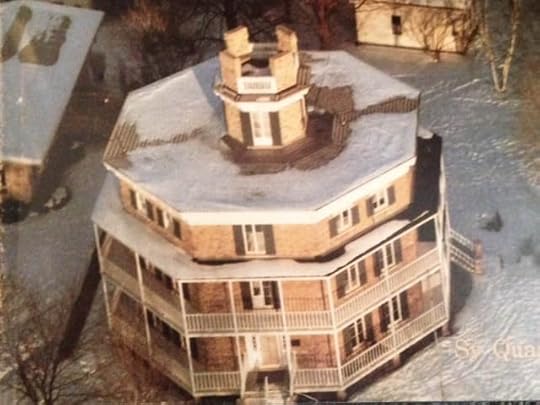
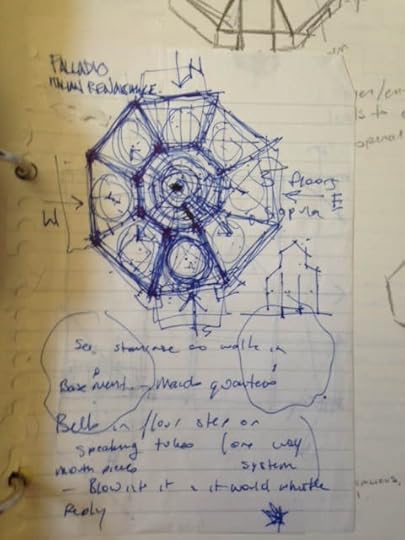
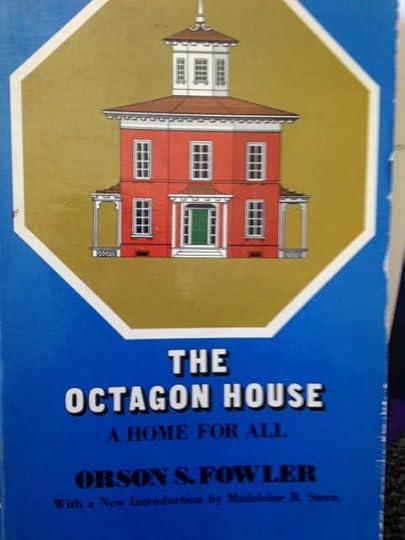 Happy Holidays!
Happy Holidays! Thank you to Rebecca and Martha for inviting me to take part in the American Historical Novel Holiday Open House. In honor of the holidays, I’m raffling two signed copies of RELIANCE, ILLINOIS. To enter the contest, simply answer the following question below in the comments:
What is one of your fondest memories of the house (or apartment) you grew up in?
Why is this on my mind? Perhaps because I’m days away from traveling back to my childhood home in Grass Valley, CA. My folks still live in the house they built - a modest, comfortable place - more than forty years ago and every return is layered with memories.
In contrast, Miss Rose’s house in my second novel, RELIANCE, ILLINOIS is neither modest nor comfortable to Madelyn Branch, a thirteen-year-old girl sent to live and work there.
Its exterior is based off an octagon house I toured in Watertown, Wisconsin, which was built by John Richards in 1854. The inside is a composite of several other period houses designed by Orson Fowler, who in the 19th century was a self-proclaimed expert in a number disciplines, including family planning, architecture, and phrenology (the study of one's characteristics through the bumps on one's head). Fowler -- for reasons he wrote about in convoluted detail -- considered the octagon an ideal shape for maximizing health and well-being. While the design never gained the lasting popularity he predicted, there remain quite a few excellent examples nationwide that are still standing and open for visits. If you happen to live in the SF Bay Area, check out the McElroy Octagon House at 2645 Gough Street.
I gave Miss Rose an octagon house because she needed a home as grand in stature as she believes herself to be, a house that reflected the eccentricities of the era. I needed a house that would intimidate and intrigue the townspeople of Reliance. Finally, I needed a structure around which to build a my story, and to which I could return in my imagination each day I sat down to write.
Published on December 19, 2018 06:45
November 4, 2018
Into The Lake
Published on November 04, 2018 20:24
October 18, 2018
About the word "can't"
I was taught never to say “can’t.” It was as forbidden in my house as any other four letter word, and I understand why: to prevent a lazy acceptance of first failures. Yet there are things, a multitude in fact, that I cannot and will never be able to do. I can’t dunk a basketball. I can’t see without glasses or comprehend higher math or paint like Caravaggio. The list of things I cannot, and will never be able to do regardless of my effort, grows with each passing year.
While initially depressed by this realization, I now I find it a relief. Because I have finally come to a point in my life when I am able to openly admire someone else’s gifts and say, without envy or self-loathing: “Oh wow! I can’t do that.” And then return to what I can do, and do it well.
My job, I think, is to learn from the unmatchable mastery of others, to cultivate the joy of self-discovery, and to guard against envy and self-deprecation. My job is to discover the limits of my abilities, to make something new and original, however I am able, and to offer it humbly.
Published on October 18, 2018 13:39

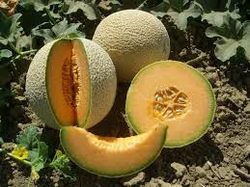
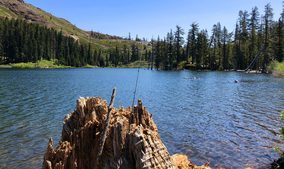 From
From 